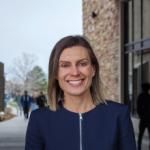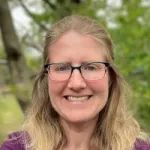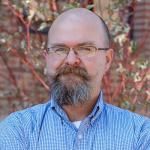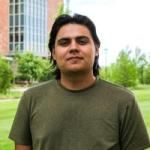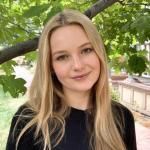Center for Social and Environmental Futures (C-SEF)
Conducting cutting-edge research, education, and outreach activities focused on human dimensions of environmental problems
Center for Social and Environmental Futures (C-SEF)
Conducting cutting-edge research, education, and outreach activities focused on human dimensions of environmental problems
The mission of the Center for Social and Environmental Futures (C-SEF) is to conduct cutting-edge research, education, and outreach activities focused on human dimensions of environmental problems, with specific emphases on two broad areas, focusing on long-term and short-term futures, respectively.
- Activities focused on ‘the big picture’ will address questions pertaining to long-term and large-scale futures, such as how economic growth, geopolitics, global security, inequality, migration patterns, and other development trends will be affected by environmental problems, and how they will affect humankind’s ability to achieve environmental goals.
- Activities focused on ‘the here and now’ will address questions pertaining to how we can move forward in addressing environmental problems immediately, such as coalition building across partisan and other divisions, adaptation, environmental policy, links between public and private sectors, resource management, and resilience, among others. C-SEF will also serve as a hub for environmental social science research in CIRES and on campus, catalyzing collaboration between social and natural environmental scientists.
*Recordings of past C-SEF events can be found in the event listing, under the Events tab.
Center Director
Center Research Fellows
Center Office Manager
Postdoctoral Researchers
Center Student Intern
Callie Blaseg
Past Employee
Graduate Student Assistant
C-SEF Alumni
Current opportunities at C-SEF
News
C-SEF Events
C-SEF Seminars address four themes related to our center's mission: 1. The Big Picture, 2. Here and How, 3. Get Serious, 4. Come Together. Recordings from past seminars are available on links below.
Upcoming Events
Past Events
2023
Burgess, Matthew G. Depolarizing Climate Change in the United States (2023). Conferences and Symposia. 1048.
Hegwood M, Burgess MG, Costigliolo EM, Smith P, Bajželj B, Saunders H, Davis SJ. July 2023. Rebound effects could offset more than half of avoided food loss and waste. Nat Food (2023).
Burgess, M.G., Becker, S.L., Langendorf, R.E., Fredston, A., Brooks, C.M., Climate change scenarios in fisheries and aquatic conservation research, ICES Journal of Marine Science, Volume 80, Issue 5, July 2023, Pages 1163–1178.
Burgess, M.G., Langendorf, R.E., Moyer, J.D. et al. Multidecadal dynamics project slow 21st-century economic growth and income convergence. Commun Earth Environ 4, 220 (2023).
Dilling L, Daly ME, Travis WR, Ray AJ, Wilhelmi OV. March 2023. The role of adaptive capacity in incremental and transformative adaptation in three large U.S. Urban water systems. Global Environmental Change 79.
2022
Basseches, J.A., Bromley-Trujillo, R., Boykoff, M.T. et al. Climate policy conflict in the U.S. states: a critical review and way forward. Climatic Change 170, 32 (2022).
Dubash, N. K., Mitchell, C., Boasson, E. L., Córdova, M. J. B., Fifita, S., Haites, E., Jaccard, M., Jotzo, F., Naidoo, S., Romero-Lankao, P., Shlapak, M., Shen, W., Wu, L., Aasen, M., Bashmakov, I., Bhatia, P., Bertoldi, P., Boykoff, M., Britton, J.,Tosun, J. (2022). National and Sub-national Policies and Institutions. In Climate Change 2022: Mitigation of Climate Change. Contribution of Working Group III to the Sixth Assessment Report of the Intergovernmental Panel on Climate Change Cambridge University Press.
Burgess MG, Becker SL. 2022. Good and bad news for ocean predators. Science 378: 596-597. (Companion to Juan-Jordá et al. 2022)
Marshall R, Burgess MG. 2022. Advancing bipartisan decarbonization policies: Lessons from state-level successes and failures. Climatic Change 171, 17. Correction to Table 2.
Hegwood M, Langendorf RE, Burgess MG. 2022. Why win-wins are rare in complex environmental management. Nature Sustainability 5: 674-680.
Pielke Jr. R, Burgess MG, Ritchie J. 2022. Plausible 2005-2050 emissions scenarios project between 2 and 3 degrees C of warming by 2100. Environmental Research Letters 17: 024027.
There are large gaps in knowledge and unvetted assumptions about how social systems will evolve in the 21st Century, with very different outcomes for various environmental goals as well as human well-being in general. There are also large knowledge gaps regarding nearer-term and more local issues such as how communities can adapt to the environmental challenges they face immediately, and how society can quickly scale up sustainable infrastructure, among others. Social science is crucial for an accurate and empirically-based characterization of human-environment interactions, defining problems and solutions, and ensuring that science and technology are applied in ethical and equitable ways. Science that is aimed at informing decisions to support human well-being is best pursued as a multidisciplinary, integrated, societally engaged effort.
C-SEF is unique on campus in at least three ways. First, through its focus on futures, it connects local and global, and near-term and long-term, issues in explicit and innovative ways. Second, it connects topics and challenges that are seldom connected explicitly, such as security and equity, in the context of sustainability. Lastly, it connects quantitative and qualitative, and social and natural, sciences within CIRES and on campus.
